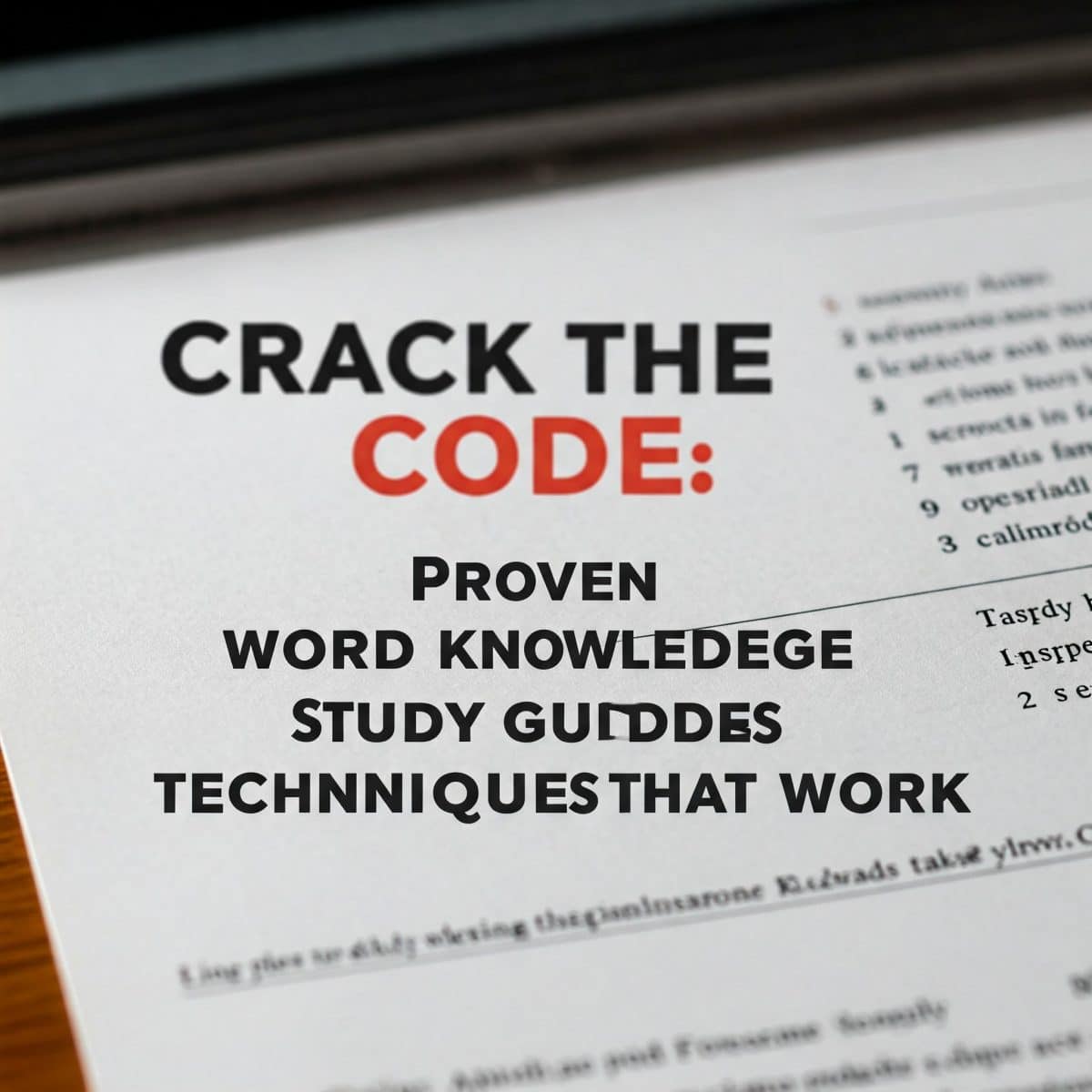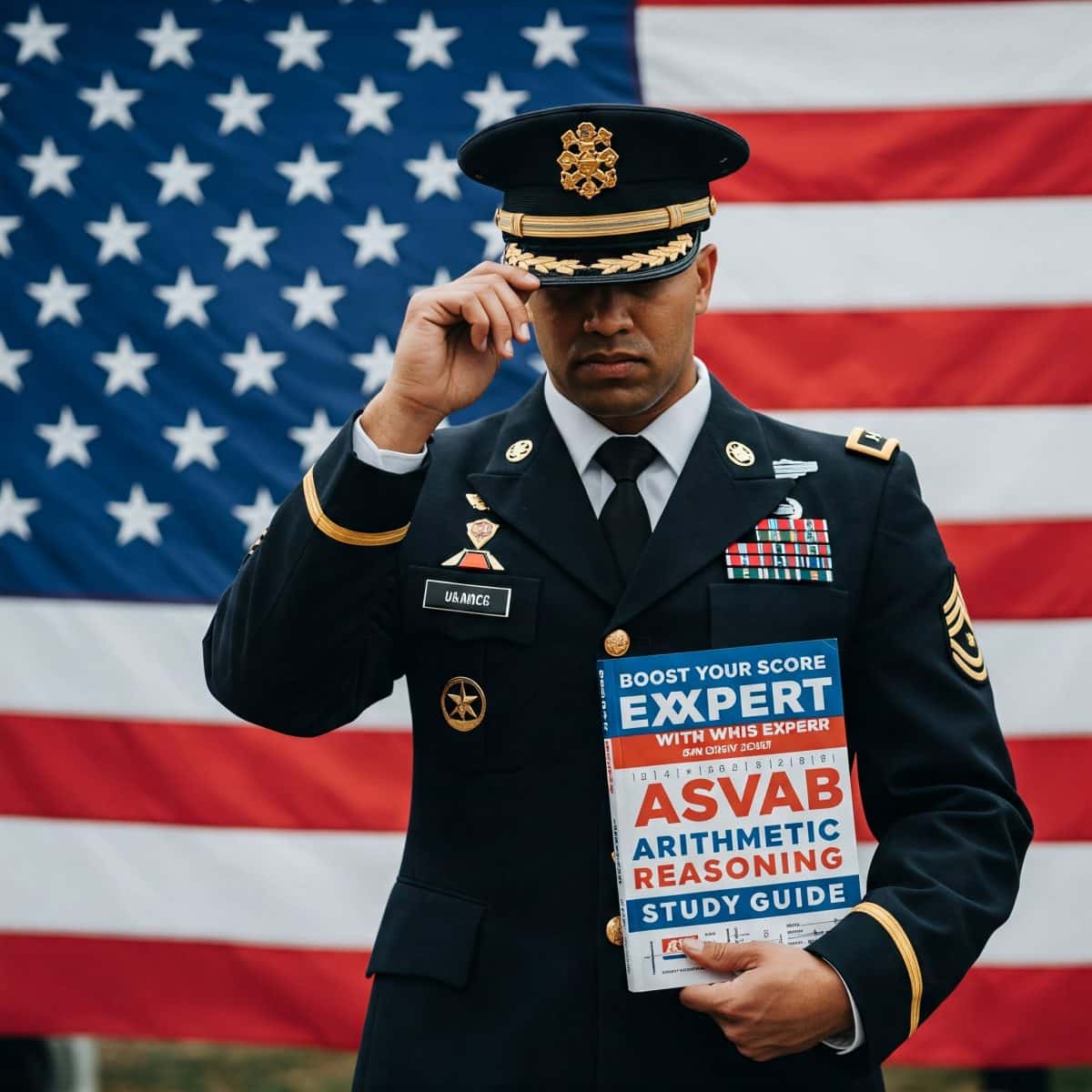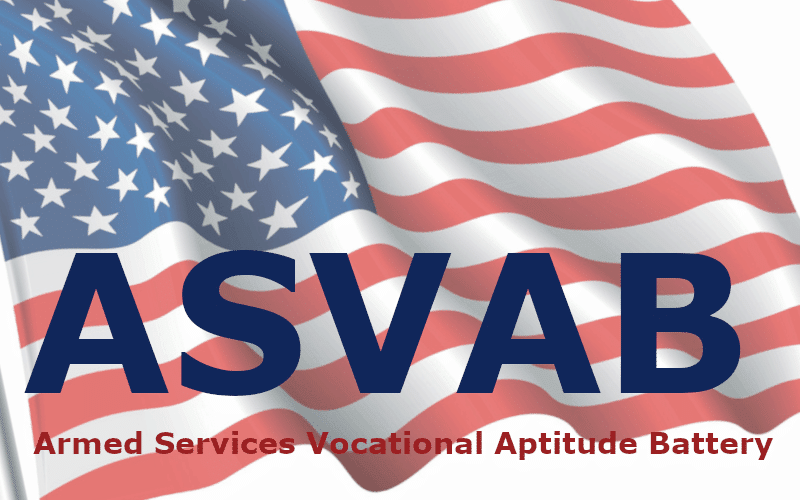If you’re gearing up for the ASVAB (Armed Services Vocational Aptitude Battery) exam, you probably already know that the Word Knowledge section is one of the most important parts of the test. Not only does it test your understanding of vocabulary, but it also plays a big role in your overall score. To help you out, I’m here to share some practical, easy-to-follow techniques that will boost your performance on this section. By following these techniques, you’ll have a clear, effective path to ace the ASVAB Word Knowledge test.
Let’s break down some of the best ASVAB Word Knowledge study guide tips that will get you ready to tackle this test with confidence.
Understanding the ASVAB Word Knowledge Test
What’s in the Word Knowledge Section?
The ASVAB Word Knowledge section primarily tests how well you know the meanings of words and how you can use them in different contexts. You’ll face multiple-choice questions where you’ll be asked to choose the word that best fits a given definition. Sounds simple, right? But the challenge lies in how well you know the words and how fast you can recall their meanings.
You’ll encounter words of varying difficulty and knowing how to approach them will give you the edge. This is where a solid ASVAB word knowledge study guide comes in handy.
Why It Matters
The Word Knowledge section is crucial because it contributes to your overall ASVAB score. The higher your score, the more job opportunities are available to you in the military. Whether you’re aiming for a technical or leadership role, a strong vocabulary will help you perform well on the test and in the military.
Top ASVAB Word Knowledge Study Guide Techniques
Start with the Basics: Build Your Vocabulary
First and foremost, you need to focus on increasing your vocabulary. You might already have a general idea of words, but to really do well on the Word Knowledge section, you need to expand your understanding. Here’s how to get started:
- Read Regularly – Reading books, articles, or any kind of written material will expose you to new words. Whether it’s fiction or non-fiction, the more you read, the more words you’ll encounter.
- Use a Dictionary and Thesaurus – Whenever you come across a word you don’t know, look it up. This helps not only with the word’s definition but also with its synonyms and antonyms. A thesaurus is particularly useful for understanding subtle differences between similar words.
- Learn Word Roots – Many English words share common roots. For example, if you know the word “benevolent” means kind, understanding the root “bene” (which means “good”) can help you guess the meanings of other words like “benefit” or “benevolence.”
Use Flashcards to Reinforce Learning
One of the most effective ways to study vocabulary for the ASVAB is to use flashcards. Flashcards are easy to make and incredibly helpful for memorization. Here’s how to make the most of them:
- Write the Word on One Side – On the other side, write its definition, synonyms, and an example sentence. This will help you understand how the word is used in context.
- Review Regularly – Go through your flashcards every day. The more you review, the better you’ll remember the words. You can use apps like Quizlet to create digital flashcards and review them on the go.
- Group Words by Theme – Instead of studying words randomly, group them by themes. For example, put together words related to emotions, colors, or actions. This approach helps you recognize patterns and makes it easier to recall words when needed.
Take an ASVAB Word Knowledge Practice Test
A key part of any study guide is practice. You wouldn’t go into the ASVAB Word Knowledge section without knowing what to expect, right? Taking ASVAB word knowledge practice tests gives, you a real feel for the type of questions you’ll face and helps you identify your weak points.
- Take Timed Tests – Practice under timed conditions to get used to the pressure. This will help you improve your speed and accuracy on the actual exam.
- Review Mistakes – After taking a practice test, go over any questions you got wrong. Understanding why you made mistakes will help you avoid them in the future.
- Focus on Areas of Improvement – If you consistently struggle with certain types of words, make those areas a priority in your study sessions.
Understand Context Clues
A lot of the questions in the ASVAB Word Knowledge section will require you to understand the meaning of a word based on the context in which it’s used. This means that even if you don’t know the exact definition of a word, you can often figure it out by looking at the surrounding text. Here’s how to do that:
- Look for Clues in the Sentence – Pay attention to the sentence’s overall meaning. Words like “however,” “but” or “for example” can give you hints about a word’s meaning.
- Practice Context Clues – When studying new words, practice by looking at them in different sentences and trying to guess their meanings based on context.
Break Down Difficult Words
If you come across a difficult word in your study guide or practice tests, break it down into smaller parts. Many words are made up of prefixes, roots, and suffixes that you can analyze to understand their meaning.
- Prefixes and Suffixes – Understanding common prefixes (like “un-,” “re-,” “dis-”) and suffixes (like “-ly,” “-ful,” “-ness”) will help you figure out what a word means.
- Roots – Many words come from Latin or Greek roots. If you know a root like “bio” (meaning life) or “graph” (meaning write), you can guess the meaning of words like “biology” or “autograph.”
How to Stay Motivated While Studying
Staying motivated while studying for the ASVAB can be challenging, but it’s important for your success. Here are a few tips to keep you on track:
Set Small, Achievable Goals
Instead of trying to study everything at once, break your study sessions into smaller tasks. For example, you could aim to learn 10 new words a day or complete one ASVAB word knowledge practice tests each week. This makes your study sessions more manageable and helps you feel a sense of accomplishment as you go along.
Track Your Progress
Keep a log of your study sessions and progress. Seeing how far you’ve come can be motivating and will help you stay focused. It also helps you see which areas you’ve mastered, and which ones need more work.
Reward Yourself
Give yourself a reward after completing a study session or achieving a goal. Whether it’s taking a break, watching your favorite show, or treating yourself to something you like, a little reward can make studying more enjoyable.
Join Study Groups
Studying with others can help keep you motivated. You can join online ASVAB study groups where you can share tips, practice together, and help each other out.
Get a Tutor
If you need more personalized help, consider working with a tutor who specializes in ASVAB prep. A tutor can focus on your specific weaknesses and provide more targeted instruction.
Act Now!
Preparing for the ASVAB, especially the Word Knowledge section, doesn’t have to be overwhelming. With the right ASVAB word knowledge study guide techniques and consistent practice, you can improve your vocabulary and boost your score. Start building your vocabulary, use flashcards, practice with timed tests, and review your mistakes. The more effort you put into your preparation, the better your results will be.
So, what are you waiting for? Take the first step toward acing your ASVAB Word Knowledge section today. Start by reviewing your study materials, making a study schedule, and checking out some practice tests. If you need additional help or guidance, don’t hesitate to contact us. We’re here to support you every step of the way!
Good luck with your ASVAB prep! You’ve got this!




